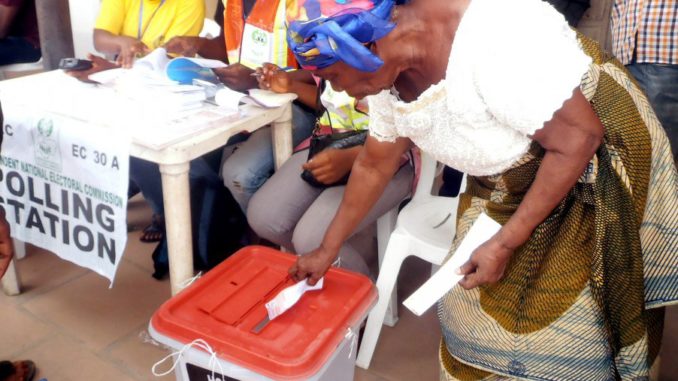
This writer once joked with a friend about the worthlessness of most of our numerous political parties. He joked that their presidential candidates should be allowed to select loved ones as running mates. This joke arose from the honest understanding that the support bases of these so-called political parties might actually not extend beyond the living rooms of presidential candidates who, ironically, take themselves seriously.
The names of these so-called presidential candidates would merely create confusion on election day, littering and bloating the election register to the discomfort of voters and electoral officials. Of course, we are in a democracy where anything can pass for a political partly in a disorderly society.
Small political parties, otherwise known as third parties, can be important in some democracies. They help to highlight issues that might otherwise be ignored by bigger parties. However, these small parties tend to disappear once the issues they canvass have been absorbed by a dominant party that has the capacity to amplify and implement them. This has been the case in the United States of America whose major political parties, the Democratic Party and the Republican Party, have shared political spoils between them for many decades.
Regardless of the credentials the presidential candidates of our mushroom political parties might be flaunting, the bitter truth is that only the ruling All Progressives Congress and the Peoples Democratic Party have what it takes to provide leadership in contemporary Nigeria.
Even when there may not be much to choose between these political parties, as it is quite often the case with political parties in many heterogeneous societies, they are the only political parties that have penetrated the divides and have proved to be competitive. One of them will provide leadership in the aftermath of the February 2019 presidential election.
One significant attribute of the putative 2019 election is that both ethnic and religious considerations have been snookered somehow from electoral considerations. Both candidates of the major parties, incumbent President Muhammadu Buhari of the APC and erstwhile Vice President Atiku Abubakar of the PDP, share the same ethnic and religious affinities-Muslim and Fulani from the North. Just as it was the case in 1999 when contest was between Chief Olusegun Obasanjo and Chief Olu Falae, both Yoruba and Christian from the South-West, potential voters would have to look beyond ethnicity and religion in pitching their tent with the main political gladiators of today. This could hardly have been said of elections, the 2015 election in particular, when political sympathies assumed a North versus South dimension.
The honest assumption that issues of some sort will dominate the 2019 election arose from discussions one had with potential voters across the various divides, as well as political arguments monitored in public places. There were those who assumed that current hardships in the Nigerian society were the outcome of the policies pursued by Buhari and his party. They blamed insecurity in the land on his leadership style, particularly what they assumed to be his lacklustre approach to the violent clashes between farmers and herdsmen in some states of the federation. In downplaying his much-talked about fight against corruption, someone actually said he loved the corruption of the PDP because there was money in circulation when the party ruled.
However, the potential pro-Buhari voters blamed current problems on those PDP members who infiltrated the APC and have since migrated back to their original party. Their perception of the PDP presidential candidate, Alhaji Atiku Abubakar was that of a corrupt politician whose epitaph had already been written by Olusegun Obasanjo, under whom he served as Vice President. They believed the reason some influential Nigerians were against Buhari was because of their corruption and the fear of what he could do to them were he to be re-elected for another 4 years. Specifically, they alluded to the anger of those who have been denied ownership of oil wells. One prospective voter from Ekiti State wondered, rather rhetorically, what could become of Nigeria were Ayodele Fayose, former governor of his state, to be appointed minister of finance in a potential PDP administration.
Quite a number of other observed discussions centred around educational and infrastructural developments, as well as the contentions restructuring of the federation, with discussants situating the candidates and their political parties along those issues. All in all, the 2019 presidential election promises to be decided on feelings that transcend historical and deleterious ethnic and religious sentiments. If those suitcases full of assorted foreign currencies are no longer ferried to the homes of influential Nigerians, as was quite often the case in the past election years, 2019 would have been progress made in the right direction, especially if the election were also to be free, fair and non-violent-regardless of the direction in which the pendulum of victory swings.
Akinola wrote from the United Kingdom
END

Be the first to comment